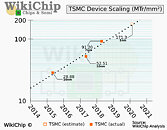
AMD Donates $15 Million Worth EPYC CPUs and Radeon Instinct Accelerators to aid COVID-19 Research
AMD on April 15 updated its COVID-19 response strategy to include a sizable donation of enterprise hardware from its inventory towards COVID-19 vaccine research. The company is giving away $15 million worth HPCs cloud computing nodes powered by EPYC enterprise processors and Radeon Instinct scalar compute accelerators to key research institutions at the forefront of vaccine research for COVID-19. AMD says that these systems will be of a turnkey nature, so they could be quickly deployed and put to use. The company invites any institution conducting COVID-19 related research to contact them for access to the node.
Making the announcement, CEO Dr. Lisa Su writes: "AMD is announcing today a COVID-19 HPC fund to provide research institutions with computing resources to accelerate medical research on COVID-19 and other diseases. The fund will include an initial donation of $15 million of high-performance systems powered by AMD EPYC CPUs and AMD Radeon Instinct GPUs to key research institutions. To ease the implementation and speed the useful impact from these donations, we are working with our HPC system provider partners to provide ready-to-install HPC nodes. Research institutions should contact AMD at COVID-19HPC[at]amd[dot]com to submit proposals for access to these nodes."
Making the announcement, CEO Dr. Lisa Su writes: "AMD is announcing today a COVID-19 HPC fund to provide research institutions with computing resources to accelerate medical research on COVID-19 and other diseases. The fund will include an initial donation of $15 million of high-performance systems powered by AMD EPYC CPUs and AMD Radeon Instinct GPUs to key research institutions. To ease the implementation and speed the useful impact from these donations, we are working with our HPC system provider partners to provide ready-to-install HPC nodes. Research institutions should contact AMD at COVID-19HPC[at]amd[dot]com to submit proposals for access to these nodes."




































